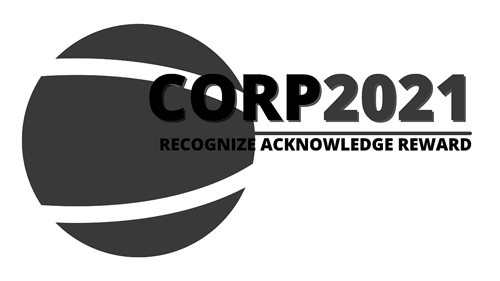
Enduring Power of Attorney Sydney.
An Enduring Power of Attorney allows you (the principal) to nominate one or more persons (referred to as attorneys) to manage your legal and financial affairs, including by buying and selling real estate, shares, and other assets, operating your bank accounts, and spending money on your behalf.
The word ‘attorney’, when used in the expression ‘power of attorney’, does not mean that the person appointed has to be a solicitor or lawyer. Your attorney can be anyone over 18 years of age who is responsible, trustworthy, and financially astute.
For estate planning purposes, most of our clients empower their attorneys to act only when they lose the capacity to make their own financial and legal decisions, that means their attorneys are not empowered to act while they are able to make those decisions themselves.
If you are incapacitated and you have not made an Enduring Power of Attorney, no one – not even your spouse – will be empowered to make financial and legal decisions on your behalf, so it is important you make this document while you have the capacity to do so.
Our Awards
Frequently Asked Questions
Should I make a power of attorney?
A power of attorney can help if you cannot look after your finances for yourself. For example, if you become ill, are confined to hospital, go overseas, or become unable to go to banks, government offices or real estate agencies, then you may need someone else to do these things for you.
By appointing an attorney, there will be someone who is legally authorised to do things for you when the need arises.
What is a general power of attorney?
A general power of attorney can be useful for a short-term appointment, for example if you are going overseas for a month or two and wish to appoint an attorney to look after your legal and financial affairs while you are away. It is also useful if you want the attorney to act only in relation to certain one-off transactions, for example to sell (or buy) property, shares, or other financial assets on your behalf. A general power of attorney can be easily tailored to meet your requirements.
It is important to understand that a general power of attorney automatically terminates if you lose mental capacity. If this happens the attorney must immediately cease to act as your attorney. If you have a general power of attorney and subsequently lose capacity, you cannot make another power of attorney because you lack the mental capacity required to do so.
In this scenario, the only way to have someone make decisions on your behalf is to approach the Guardianship Division of the NSW Civil and Administrative Tribunal to seek the appointment of a financial manager. For this reason, for estate planning purposes we recommend you consider obtaining an enduring power of attorney instead of the general power of attorney.
What is an enduring power of attorney?
An enduring power of attorney, unlike a general power of attorney, is one which continues to operate after the principal has lost mental capacity. An enduring power of attorney is normally used if the principal wishes their attorney to make decisions for them in the long term.
An enduring power of attorney can be tailored in the same way as a general power of attorney to meet your circumstances. You can make special directions in the power of attorney document about what you want your attorney to be able to do or impose limits on what they can do.
Do I lose any rights?
No. Making someone your attorney does not mean that you lose your right to operate your bank account, deal with your real estate, or exercise any other rights that you have. You can continue to look after your money and property while you still have mental capacity to do so.
Who can I appoint as my attorney?
Any person over the age of 18 years can act as your attorney. It can be a close family member or a friend who you trust. You should ask the person you want to appoint if they will agree to be your attorney and look after your money and property.
Only appoint a person you can trust to look after your affairs. For example, there have been occasions where due to family pressures, a principal has appointed a family member to be their attorney despite having reservations about their trustworthiness. Unfortunately, in such circumstances, it is not unusual for the attorney to abuse their position and not act in the best interest of the principal.
If you appoint more than one attorney you need to indicate whether you want your attorneys to act jointly (that is, only when they all agree, in which case they all must sign any document) or jointly and severally (any one attorney will be able to act independently of the others).
If you appoint more than one attorney to act jointly, you should also indicate whether you want the power of attorney to automatically terminate if one of those joint attorneys dies, becomes bankrupt or does not want to act as an attorney any longer (‘vacates office’).
Some people feel comfortable to terminate the power if one of the joint attorneys vacates office, while others will want the power of attorney to continue despite one of the joint attorneys vacating office.
If you decide to appoint a substitute attorney, again, be sure to appoint someone you trust who is capable of carrying out their duties as an attorney.
What can my attorney do?
With some exceptions, and depending on what limits or conditions you impose, your attorney can do all the things that you can do with your legal and financial affairs. For example, an attorney can sell, lease or mortgage your house, sell your personal belongings, take money out of your bank accounts, gain access to your documents (other than your Will), and sell your shares.
You can impose limits or conditions on the attorney’s authority. It is important to understand that anything your attorney does for you under this power, as long as it is legal, is binding on you. For example, if your attorney lawfully enters into and signs a mortgage on your behalf, the law will see it as if you have signed the mortgage documents yourself. In such a case you will be liable to repay the mortgage, not your attorney.
More generally, an attorney cannot vote in an election or make health or other personal decisions for you. Also, your attorney cannot carry out your duties as trustee for someone else.
What are my attorney’s obligations?
An attorney is under a duty to act in your best interests, except as specifically authorised in the power of attorney document. An attorney must:
- Keep the attorney’s money and assets separate from your money and assets (unless you and your attorney are joint owners or operate joint bank accounts)
- Keep proper accounts and records of how the attorney handles your money and assets.
- The NSW Trustee & Guardian, or anyone interested in your welfare, can require the attorney to produce these accounts and records.
If the attorney does not carry out the obligations properly, they may have to compensate you.
Except where the power of attorney document says otherwise, the attorney cannot be paid for his or her work as attorney, although they can claim any out of-pocket expenses directly connected with carrying out their duties as your attorney. The attorney should keep receipts to prove these costs. If a solicitor, the NSW Trustee & Guardian, or a trustee company is appointed as attorney, the power of attorney document may contain a clause allowing them to charge a fee for acting or this may be covered by a separate agreement.
Can my attorney use my money for gifts or for their own benefit or the benefit of others?
An attorney cannot make any gift of your money or property unless the power of attorney form specifically allows the attorney to do so.
Allowable gifts are gifts to a relative or close friend of yours of a seasonal nature (for example, birthday, Christmas, or other religious occasion) or because of a special event (for example, birth or marriage). Also permitted are donations of the kind that you have made before or might reasonably be expected to make (for example, to a favourite charity).
However, the value of the gift or donation must be reasonable having regard to your financial circumstances and the size of your estate.
As with gifts, an attorney cannot use your money for their own benefit, or the benefit of any other person, unless the power of attorney document specifically allows the attorney to do so.
You can allow an attorney to use your money for housing, food, education, transportation and medical care for the attorney or a person nominated in the power of attorney (for example, your children).
Can I change my mind and cancel a power of attorney?
You can revoke (that is, cancel) a power of attorney at any time as long as you still have mental capacity. There is no set form for revoking a power of attorney – a letter will do. An attorney must not do any act or thing under the power of attorney if the attorney knows of the revocation.
There is no obligation to register the revocation, but if the power of attorney has been registered it is advisable to register the revocation. You should also inform your bank that it has been revoked as well as anyone else who might be expected to act on the faith of the power of attorney.
What happens if there is a dispute?
If there is a dispute involving a power of attorney and the people involved cannot settle it, they will have to go to either the NSW Civil and Administrative Tribunal or the Supreme Court.
Under the Powers of Attorney Act 2003 (NSW) both the Supreme Court and the NSW Civil and Administrative Tribunal have the power to review enduring powers of attorney. The NSW Civil and Administrative Tribunal is a faster and cheaper alternative to the Supreme Court for resolving disputes.
What about medical decisions?
In NSW, a power of attorney only authorises an attorney to act in connection with legal and financial matters such as bank accounts, shares, or property. It cannot be used to make medical or lifestyle decisions. If you want someone to make medical, treatment and other personal or lifestyle decisions for you, you should appoint an Enduring Guardian.
Do I have to register my power of attorney?
You must register your power of attorney if your attorney is going to sell, mortgage, lease, or otherwise deal with your real estate. Otherwise, it is not necessary to register it.
What about stamp duty?
In NSW, it is not necessary to pay stamp duty on general or enduring powers of attorney.






